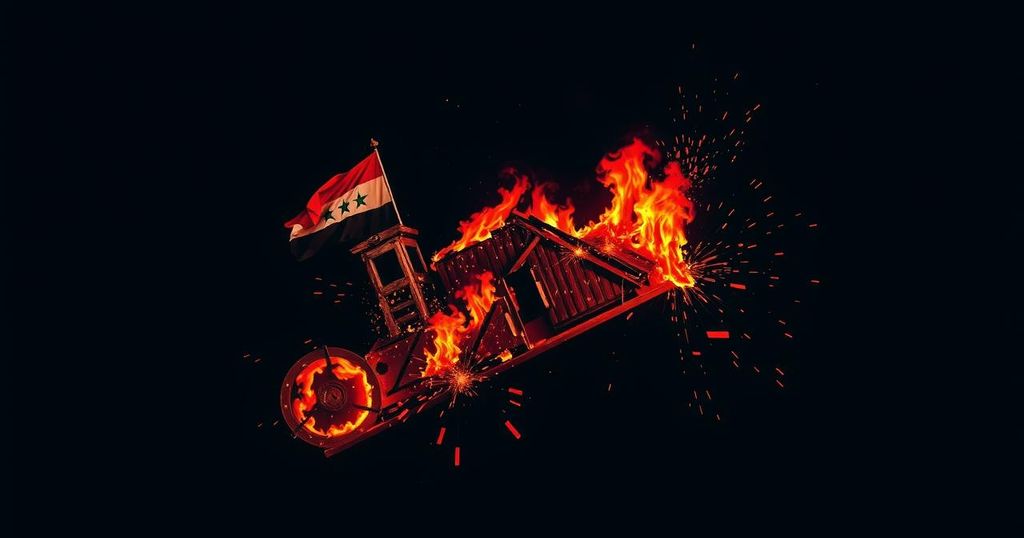The rekindling of the Syrian civil war has ignited discussions in Israel regarding its security strategy, with the nation weighing the risks of Iranian-backed Shia forces against Turkish-supported Sunni jihadists. The complexity of the situation is compounded by Syria’s weakened position and the geopolitical interests of Turkey, Iran, and Russia, which continue to impact the region following the fallout from recent conflicts.
The resurgence of hostilities in Syria has left many Israelis pondering the evolving landscape and its implications for national security. The question arises: which threats are preferable—an Iranian-backed Shia militant presence or a Turkish-supported Sunni jihadist presence along their border? Israel is seemingly adopting a strategy of non-involvement in the Syrian fray, unless its security is jeopardized, which aligns with Yitzhak Shamir’s historical sentiment of wishing success to both warring factions.
On November 27, a coalition of Sunni jihadists, formerly allied with al-Qaeda, commenced an offensive in northern Syria, strategically targeting the city of Aleppo amidst a volatile backdrop shaped by previous regional conflicts. The aftermath of Hamas’s aggressive October 7 attack on Israel has cascaded into renewed fighting as Hezbollah, now challenged, opened an additional front. Israel has actively engaged Hezbollah in operations aimed at neutralizing threats stemming from Iranian influence.
As the Syrian rebels perceive a window of opportunity arising from the weakened status of Assad’s backers—Russia, Iran, and Hezbollah—they have ramped up military efforts to reclaim territory. The rebels sought to capitalize on the ceasefire between Hezbollah and Israel, resulting in the recent offensive signifying broader regional ramifications.
In examining the interplay of key players—Israel, Turkey, Iran, and Russia—it becomes apparent that while Israel benefits from Assad’s diminished power, it is cautious not to destabilize the region excessively, as chaos may lead to unpredictability and increased threats.
Turkey’s motivations stem partly from domestic pressures regarding the influx of Syrian refugees; Erdogan’s backing of the rebels represents an intersection of humanitarian concern and strategic statecraft. Moreover, Iran faces considerable losses as its investment in Syria jeopardizes its aspirations to maintain a corridor for arms to Hezbollah. Moscow’s involvement reinforces its geopolitical ambitions, using the Syrian conflict as a means to counter U.S. influence, while preserving its naval and military assets in the region.
The article delves into the complexities emerging from the renewed civil war in Syria and its ripple effects across the Middle East. It highlights how Israel contemplates the ongoing conflict, positioning itself amid Iranian and Turkish-led factions. The piece analyzes historical context, including past hostilities, and key players’ strategic interests amidst the shifting alliances and dynamics in the region following significant recent events, such as the October 7 Hamas attack.
In conclusion, the Syrian civil war’s resurgence prompts Israel to reassess its security strategy while remaining resolute in its desire to avoid direct engagement. The paradox of wanting a weakened Assad without fostering chaos underscores the complexity of geopolitical intrigues at play. Meanwhile, Turkey, Iran, and Russia each navigate their interests in the conflict, shaping a landscape that could have long-lasting ramifications for regional stability.
Original Source: www.jpost.com







